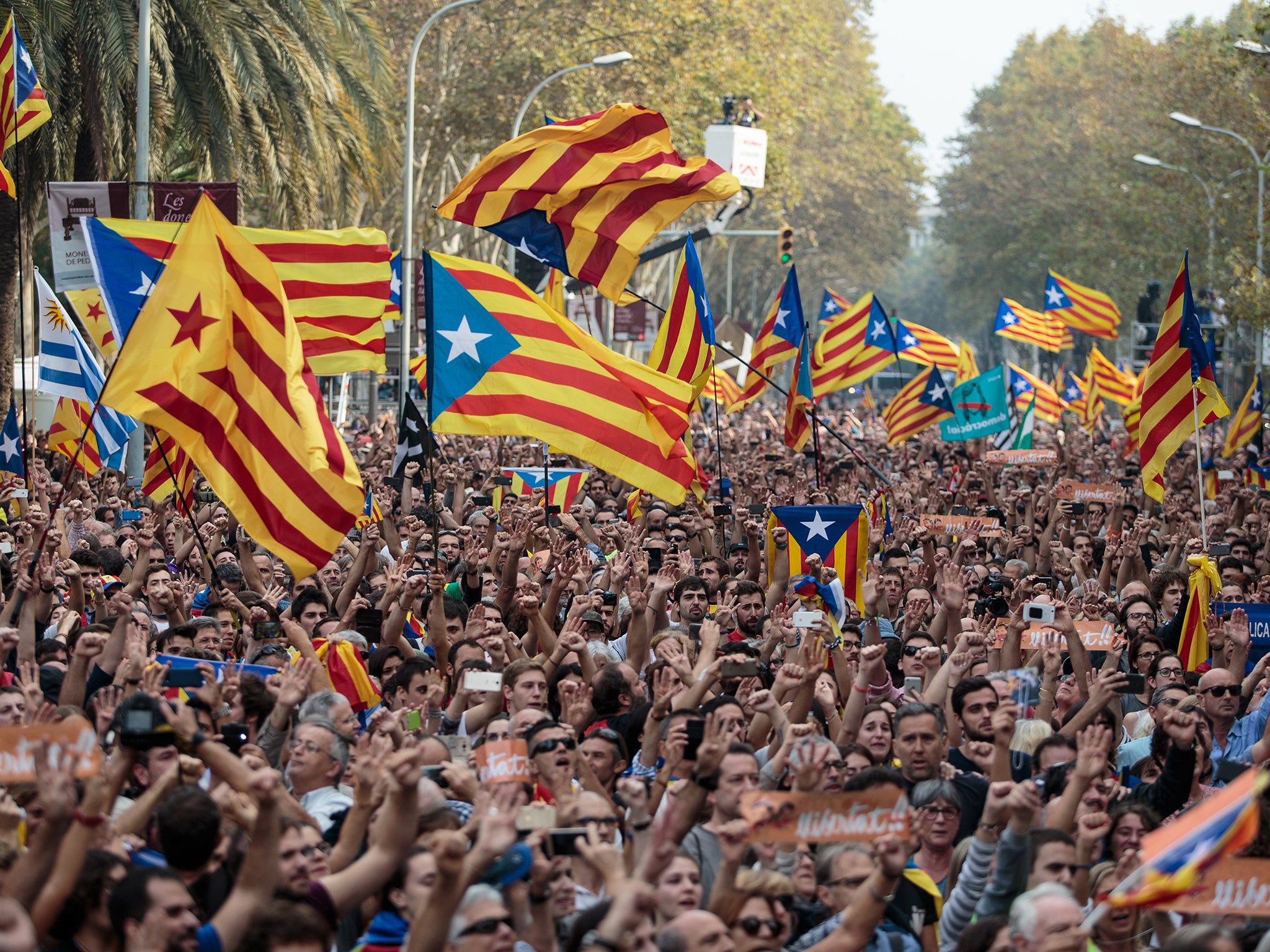Theresa May has said the UK "does not recognise" the Catalan parliament's declaration of independence.
In a statement released by Downing Street the Prime Minister said: “The UK does not and will not recognise the Unilateral Declaration of Independence made by the Catalan regional parliament. It is based on a vote that was declared illegal by the Spanish courts.
"We continue to want to see the rule of law upheld, the Spanish Constitution respected, and Spanish unity preserved.”
Spanish Prime Minister Mariano Rajoy has already instigated measures for direct rule to be imposed on the region, effectively suspending the Catalan regional parliament.
Regional President Carles Puigdemont and his vice president, Oriol Junqueras, exchanged congratulatory embraces and handshakes following the ballot, in which groups opposed to independence abstained.
Outside, thousands who had gathered near the parliament building to call for independence cheered, with some dancing and raising glasses after seeing the vote and the counting live on a giant screen.
The motion that passed calls for beginning an independence process that includes drafting Catalonia's new top laws and opening negotiations "on equal footing" with Spanish authorities to establish cooperation.
Shortly before the vote in Madrid, Mr Rajoy made his case for measures to keep Spain unified. The conservative leader, who received sustained applause before and after his speech, told the chamber that Spain was facing a challenge not seen in its recent history.
What is happening in Catalonia is "a clear violation of the laws, of democracy, of the rights of all, and that has consequences", he said.
Mr Rajoy said his government's first move would be to dismiss Mr Puigdemont and his regional ministers if the Senate approves the Spanish government's use of Article 155 of the Constitution in a vote.
The special measures, he said, were the only way out of the crisis, adding that Spain wasn't trying to take away liberties from the 7.5 million Catalans but instead trying to protect them.
He added that the measures were aimed at restoring order and has promised to call a new regional election once that is achieved.
If they are granted, it will be the first time in four decades of democratic rule that the national government in Madrid would directly run the affairs of one of Spain's 17 semi-autonomous regions, a move that will likely fan the flames of the Catalan revolt.
Mr Rajoy's conservative Popular Party has an absolute majority in the Senate, thus guaranteeing the approval of his proposals. But he has also sought support from the country's main opposition parties. It will then be up to the government when to implement the measures taking over the Catalan government.
Catalonia represents a fifth of Spain's gross domestic product and polls show its people roughly evenly divided over independence.
Subscribe to Independent Premium to bookmark this article
Want to bookmark your favourite articles and stories to read or reference later? Start your Independent Premium subscription today.


Join our commenting forum
Join thought-provoking conversations, follow other Independent readers and see their replies